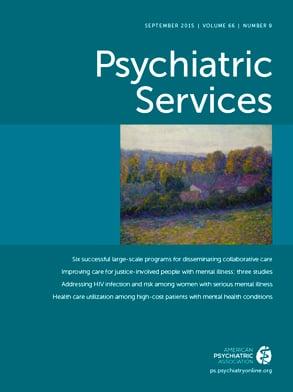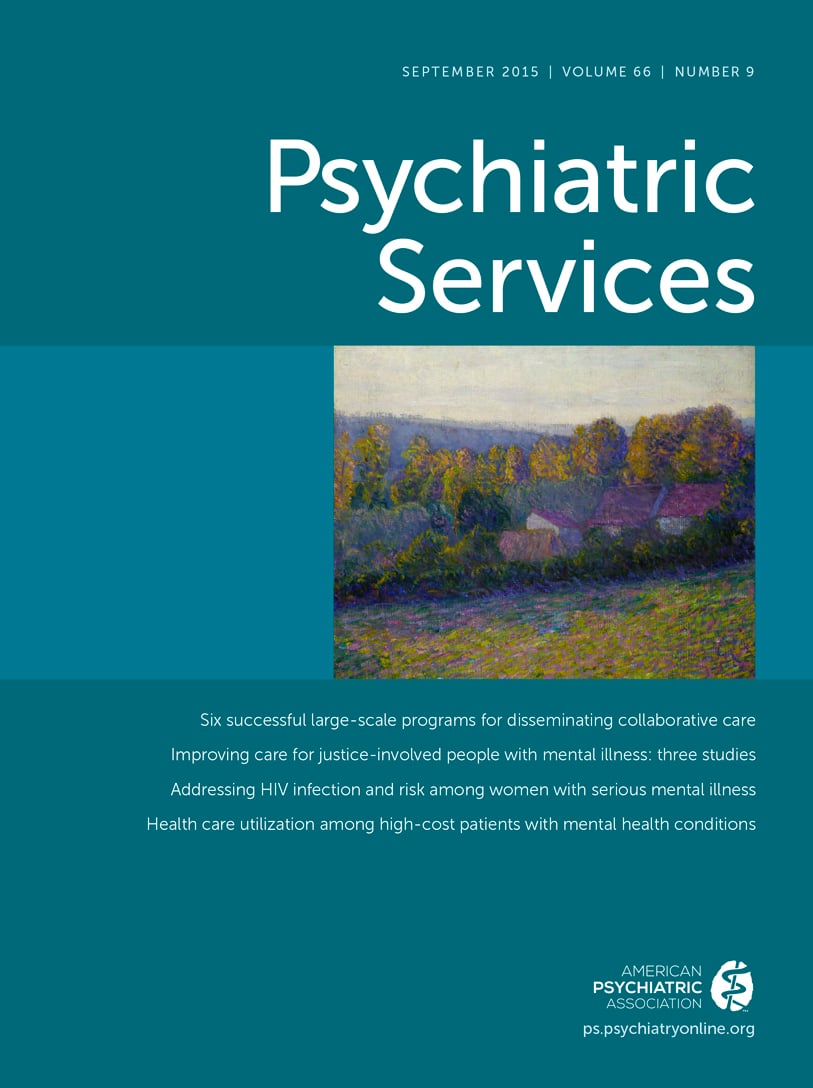TO THE EDITOR: This letter describes a recent initiative undertaken by 32 behavioral health organizations that used a learning community (LC) methodology to support the adoption of trauma-informed care (TIC) principles and practices. LC is a valuable change methodology because it is respectful of organizations’ day-to-day realities (
1).
The vulnerabilities of traumatized individuals require organizational redesign in six key domains: screening and assessment; consumer-driven care and services; trauma-informed, educated, and responsive workforce; trauma-informed, evidence-based, and emerging best practices; safe and secure environment; and community outreach and partnership. The change process is supported by collecting, analyzing, and acting upon data across these domains.
To participate in the TIC LC, organizations were required to identify a core implementation team to take responsibility for applying change management strategies in planning and implementing TIC approaches. A total of 32 organizations enrolled and completed the year-long LC. A pilot mixed-methods study was conducted as a formative evaluation. The organizational self-assessment (OSA) consisted of 34 items that assessed performance standards, practices, and policies in each domain. The performance monitoring tool (PMT), a 44-item evaluation tool, enabled organizations to track their performance in each domain across time. Data from the OSA and PMT were gathered from organizations at the midpoint of the LC in November 2013 and after it ended in May 2014. Here we present selected posttest results by domain.
All 32 organizations (100%) introduced trauma-informed practices as part of the assessment process and reported greater awareness of the sensitivity needed in asking clients trauma-specific questions. After joining the LC, 24 organizations (75%) reported that individuals with a trauma history were engaged to work in their program as volunteers. Organizations that did not engage consumers as volunteers were typically children’s organizations, which reported difficulty integrating such workers. All organizations educated their workforce about the basics of TIC and how each person contributes to creating a TIC environment. Twenty-nine organizations (91%) offered clients at least one trauma-specific evidence-based practice. Twenty-two organizations (70%) implemented trauma-informed supervision of staff or peers.
Twenty-nine organizations (91%) reported making an improvement in at least one of eight aspects associated with safety and security, including training staff to use crisis management skills in a trauma-informed manner and training staff about compassion fatigue. Twenty-nine organizations (91%) either initiated a partnership with a community organization or improved an existing partnership, and the same number reached out to family members, consumers, and the general public to provide education about trauma. Half of the organizations (N=16, 50%) reported organizational challenges in developing the capacity to collect and analyze TIC-related data, although they noted the importance of doing so.
In sum, the TIC LC provided resources and support to promote effective organizational change. The results indicate that the LC methodology is a promising approach to facilitating and sustaining implementation of trauma-informed practices and principles within behavioral healthcare organizations.
Acknowledgments
The authors acknowledge the support of the National Council for Behavioral Health and participating service organizations, along with the contributions of Linda Ligenza, L.C.S.W., Mary McKay, Ph.D., and Andrew Cleek, Psy.D.

